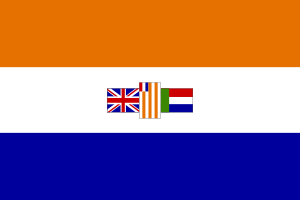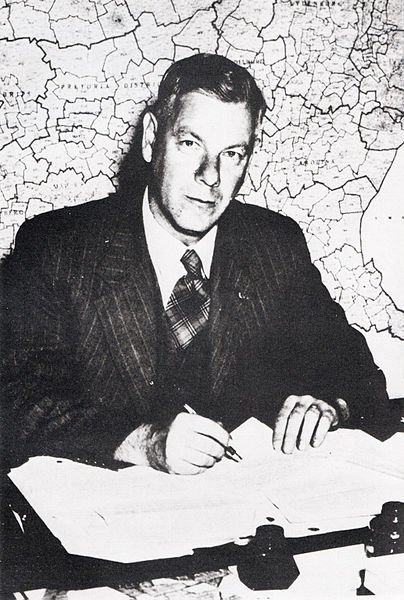
Apartheid Architect-H.F. Verwoerd

https://v1.sahistory.org.za/pages/people/bios/verwoerd-hf.htm
Background and policy of apartheid
Apartheid is an Afrikaans word meaning 'apartness', Apartheid was a National Party ideology and was legislated into South African law in 1948. It was explained to the international community that it was supposed to give all racial groups equal development and freedom of cultural expression. But in reality it was not like that.
Apartheid laws enforced unequal development of the different racial groups in South Africa. All inter-racial marriages were deemed illegal, also socialising of different races were discouraged. In essence, Apartheid was a social system that benefitted the white minority and oppressed the overwhelming black majority. Apartheid was no different than the segregation system before the Nationalist Party came to power in 1948, the difference being that Apartheid was written into law.
At the time, that is the post 2nd world war era, the rest of the world were moving away from its racial policies. Before the war the Western world were not as critical of racism, well Africa was being colonised at the time. The 2nd World War highlighted the problem of as there was a genocide of Jews happening in Europe. These ghastly acts in Europe made the world realise the problem of racism, also encouraging decolonisation. It was at the backdrop of this context that the Nationalist Party of South Africa legislated the rigid policy of Apartheid.
It is at times flabbergasting as to think “why such a policy”. The reason can be found in racial supremacy and fear, these sentiments are to be found in all racial groups. In South Africa whites were the minority, they feared losing their culture and jobs, this was their mentality. But of course, one can never justify Apartheid.
Apartheid Laws
A couple of laws that were the backbone of Apartheid:
Population Registration Act, 1950.
Citizens of South Africa had to be registered according to their racial group. Government had a record of people according to whether they were white, coloured, black, Indian or Asian. All different racial groupings were treated differently, in favour of the governing whites. At times it was not easy to decide what racial grouping an individual was, thereby creating a dilemma.
Group Areas Act, 1950
This act created physical separation between races. The act allowed the removal of people into areas set aside for their racial group. An example were the people of District Six, who were located to places on the Cape Flats (Manenberg, Heideveld, Mitchells Pain).
Promotion of Bantu Self-Government Act, 1959
A small portion of South Africa was left for black people to establish their 'homelands'. A lot of black people were removed from areas as to make way for whites. District 6, Sophiatown are well known forced removals. People from these places were placed in townships, they could not own property, only rent from white owners. This act caused a lot of resentment in South Africa, it caused hardship on many as people lived far from their work.
Some other important laws were the:
Prohibition of Mixed Marriages Act, 1949
Immorality Amendment Act, 1950
Separate Representation of Voters Act, 1951
Resistance before 1960
Resistance to Apartheid were universal, the freedom movements had a lot of support internationally.
Here are some of the organisations that liberated South Africa: African National Congress (ANC), the Pan-Africanist Congress (PAC), the Inkatha Freedom Party (IFP), the Black Consciousness Movement (BCM) and the United Democratic Front (UDF). There were also Indian and Coloured organized resistance movements (e.g. the Natal Indian Congress (NIC), the Coloured People's Organisation), white organized groups (e.g. the radical Armed Resistance Movement (ARM), and Black Sash) and church based groups (the Christian Institute).
Many consider the ANC, the most prominent.
Just 2 years after the Union of South Africa (1910), the ANC was founded in Bloemfontein (1912)
Then it was known as the South African Native National Congress (SANNC), a movement for the black intellectual. The ANC (1919) sent a deputation to London to plead for a new deal for South African blacks, the status qua remained the same.
The history of resistance by the ANC goes through three phases.
http://www.sahistory.org.za/article/history-apartheid-south-africa
In 1949, shortly after Apartheid was introduced, they ANC opted for a more militant stance with the youth league at the fore. Nelson Mandela, Oliver Tambo and Walter Sisulu started to play an important role in the ANC in this period. The Defiance Campaign of 1952 called on people to deliberately break apartheid laws and offer themselves for arrest. The idea was that if many were arrested, the system would collapse. Many (8000) were arrested, but the initiative was no match for the Apartheid government. In 1959, the PAC was formed from a breakaway group of ANC members, they opted for a more militant path. They felt that the ANC’s method were not effective. The 3 most important movements that challenged Apartheid were: The ANC and PAC, also the South African Students Organization, which was formed in the late 1960's, also made significant contributions. When the Apartheid State President F.W.de Klerk made his land mark speech to Parliament in 1990, it paved the way for Apartheid to formerly end in 1994. Nelson Mandela was then elected, by democratic process, as the first black President of South Africa (History online)
The Truth and Reconciliation Commission then was established in 1995, it was important for South Africa to have this commission as to heal from its painful past.

University of the Western Cape,
Robert Sobukwe Road,
Bellville,
7535
Tel: 021 959 2946
